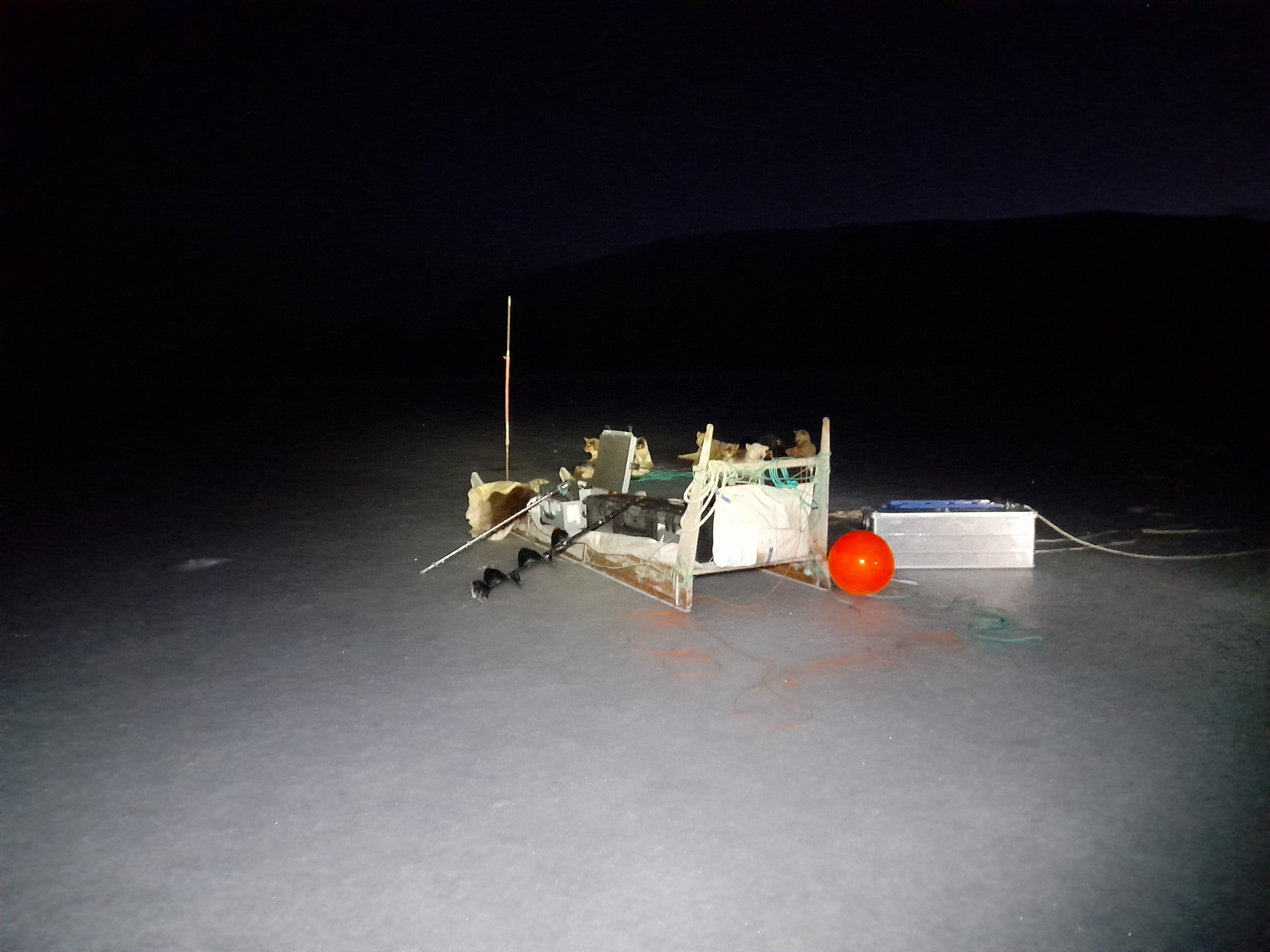Monitoring Marine Noise And Mammals Together With Local Hunters In Greenland
by Sabrina Heerema | Published: 21-Jan-22 | Last updated: 20-Jan-22 | Tags : Arctic Greenland indigenous monitoring research science | category: NEWS
 Sensors have been integrated into a sledge that local people use for transport. Photo: Steffen M. Olsen
Sensors have been integrated into a sledge that local people use for transport. Photo: Steffen M. Olsen
Arctic PASSION's work package 4 is innovating user-driven Arctic EuroGEO pilot services. The work package is led by Tero Mustonen, Chairperson of Snowchange Cooperative, and Malene Simon, who works at the Greenland Climate Research Centre at the Greenland Institute of Natural Resources.
In this work package, eight teams will develop essential Pilot Services, taking into account priorities established by the Arctic Council. The Pilot Services will provide information in areas of societal and economic relevance that are presently inadequately served: food security, emergency preparedness, wildfire and pollution risk reduction, environmental change information, and infrastructure, transport, and safe shipping. These Pilot Services constitute part of the project’s core observing system elements.
One of these is Pilot Service 7, whose development is led by Malene Simon jointly with Steffen M. Olsen, a climate scientist at the Danish Meteorological Institute. The Pilot Service Community-based management for Arctic marine climate change, noise pollution & impacts on marine living resources supports food security, sustainability, building local capacity and decision-making in Greenlandic coastal communities.
In co-creation with the community of Qaanaaq and nearby settlements in Northwest Greenland, the Pilot Service team will develop a service to monitor the marine climate and noisescape in the coastal zone and fjord system. Their methodology will encompass inclusive decision making and generate local capacity while supporting local and scientific data needs. They will ensure the critical integration of Indigenous Knowledge and Local Knowledge and engage communities.
To address a lack of baseline data on the presence of marine mammals, marine climate and noisescape of Arctic marine waters, the team will equip and maintain two to four sites, as identified by our local community partners. Sound recording and oceanographic sensors are integrated into the infrastructure that local people use for traditional fishing, hunting, and transport i.e. sledges and small boats. Together with the local community, Arctic PASSION is co-creating a visually integrated atlas of annual sound recordings and marine activities, which will act as a tool to empower the communities to manage their environment and to advance the dialogue on sustainable pathways for marine activities.
This early winter, our Arctic PASSION team has had a very constructive and positive dialogue with a small group of local hunters in Greenland on monitoring marine noise and mammals in combination with marine conditions. The first test deployment is located near Herbert Island as advised by the hunters and will record throughout the winter. More extended activities are planned for the spring.
These activities are connected to our Pilot Service 1, Event database of community-based management using oral histories, indigenous knowledge and local knowledge, led by Tero Mustonen. The pilot service will fill gaps in data through co-creation of consented knowledge on environmental change in seven regions: Alaska, BC/Yukon, Western Greenland, Northern Finland/Norway, Murmansk, Khanty-Mansia and Sakha-Yakutia.
